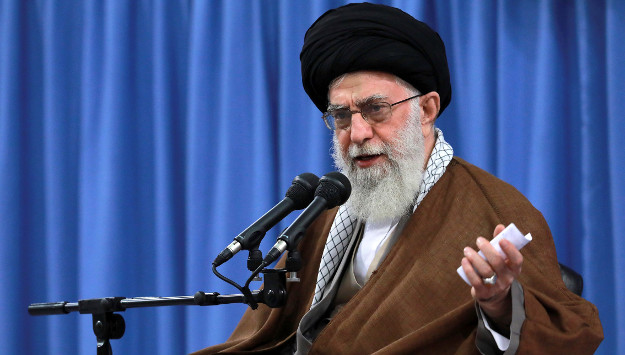News Brief: On December 5, Iran’s Supreme Leader Ali Khamenei defended the Islamic Republic’s military intervention in Syria, arguing that the Iranian forces had to neutralize enemy threats in Syria to avoid their infiltration inside Iran’s territory. “If the ill-wishers and subversive elements that are proxies of enemies, America and Zionism, had not been dealt with there [in Syria], we would have had to confront them in Tehran, Fars, Khorasan and Isfahan,” he said in a meeting with the families of Iranian military personnel killed in Syria.
Comment:
When the Islamic Revolution Guards Corps (IRGC) and its Lebanese ally Hezbollah initially began their military intervention in Syria, they tried to keep their activities largely covert. But as the war dragged on and intensified, and the number of Iranian and Hezbollah casualties soared, it became impossible for the regime in Tehran and Hezbollah to conceal their direct involvement anymore.
But there is another reason behind the Iranian government’s intention to publicize and romanticize their subversive activities in Syria and beyond: Iranian leaders understand that their engagement in regional sectarian conflicts is a prolonged and costly one, and are therefore attempting to sway public opinion in favor of it. According to a recent opinion survey, support for the regime’s involvement in the Syrian war has declined from 90 percent in 2014 to 24 percent in late 2016. Khamenei’s repeated meetings with the families of those killed in Syria and his remark that the Iranian involvement there serves Iran’s national security interests are part of that seemingly failing effort.
Read daily news briefs and longer analyses at the IranObserved project.



